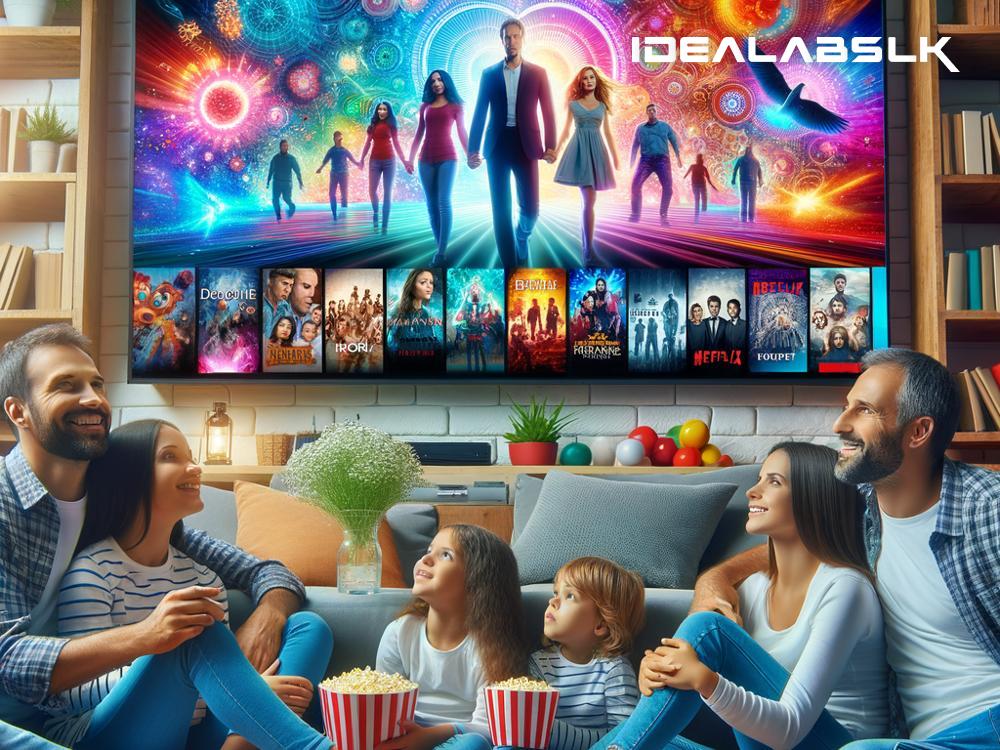How Netflix Revolutionized Streaming Services
Back in the last days of video rental stores, when people had to actually get up and drive to pick a movie, a revolution was silently brewing. This revolution was not just about change; it was about convenience, variety, and redefining entertainment. The name of this groundbreaking change? Netflix.
Netflix today is a giant in the world of streaming services, but it didn't start as the on-demand powerhouse we know and love. It evolved, and in doing so, it completely changed the game for everyone.
From Mail to Stream
Originally, Netflix was a mail-order DVD rental service, founded in 1997. The idea was simple: you picked a movie online, got it delivered to your doorstep, watched it at your leisure, and then mailed it back. This was revolutionary at the time, eliminating late fees and trips to the video store. But the real game-changer came in 2007 when Netflix introduced streaming.
Streaming allowed users to watch movies and TV shows directly on their computers, without waiting for a physical DVD. This immediate access to content was groundbreaking. Netflix had not just simplified the rental process; it had negated the need for physical media entirely.
Personalization at Its Core
One of Netflix's game-changing features was its recommendation system. By tracking what you watch, it suggests other movies and shows you might like. This personal touch made discovery a key part of Netflix's appeal. Instead of wandering aisles or scrolling endlessly through channels, viewers were guided towards content tailored to their tastes.
Original Content: The Secret Sauce
Netflix wasn't content to just stream existing content; it wanted to create it. In 2013, "House of Cards" was released, marking Netflix's first foray into original content. It was a massive success, proving that a streaming service could produce content that rivaled network and cable productions in quality.
Since then, Netflix has produced a staggering array of original content, from dramas to comedies, documentaries to animations. By creating its own shows and movies, Netflix further distinguished itself from traditional media outlets and even from other streaming services.
Global Reach, Local Flavor
Netflix didn't just stop with transforming entertainment in the United States; it went global. By 2016, it was available in over 190 countries. But Netflix knew that simply broadcasting American shows worldwide wasn't enough. It started producing local content for different regions, understanding and respecting the cultural nuances that make a show relatable. This global yet local approach expanded its appeal far beyond English-speaking audiences.
Impacts and Implications
Netflix's rise has been a significant catalyst for the cord-cutting movement, with many viewers abandoning traditional cable or satellite TV subscriptions in favor of streaming services. This shift has forced traditional networks to rethink their strategies, leading to the launch of numerous streaming platforms.
Moreover, Netflix's success with original content has changed how stories are told. Freed from the constraints of network TV schedules or movie runtime limits, Netflix's shows and films can take their time to develop characters and plot intricately. This has ushered in a golden age of storytelling, where the depth and breadth of narratives have significantly expanded.
Challenges and the Road Ahead
Of course, Netflix's journey hasn't been without its challenges. As more competitors enter the streaming space, Netflix has had to double down on creating unique, compelling content to retain its viewers. The question of sustainability also looms large, with the costs of producing high-quality original content constantly rising.
Yet, the legacy of Netflix's revolution is undeniable. It's a testament to the power of innovation, of seeing beyond the status quo and imagining a different way of doing things. Netflix didn't just create a new way to watch TV and movies; it catalyzed a shift in the entire entertainment industry, pushing it towards a future where viewers have the ultimate control over what, when, and how they watch.
In simple English, Netflix showed the world that when it comes to entertainment, there are no limits to what can be achieved with a bit of creativity, a willingness to take risks, and, most importantly, a focus on what viewers really want. As we look ahead, one thing is clear: the story of Netflix and the streaming revolution is far from over.

